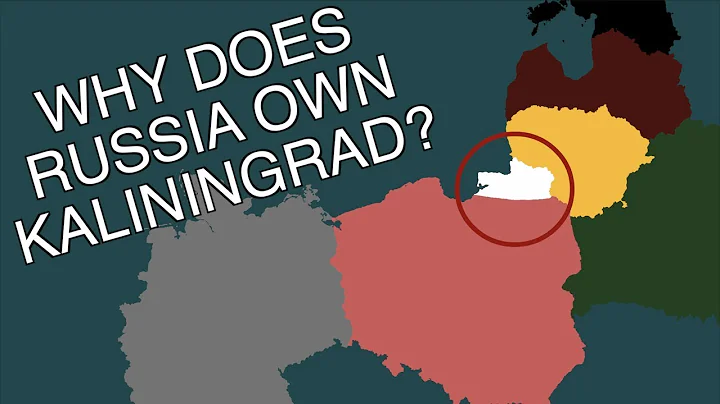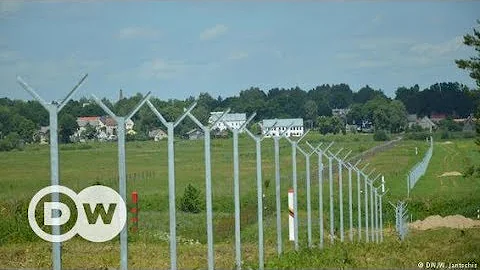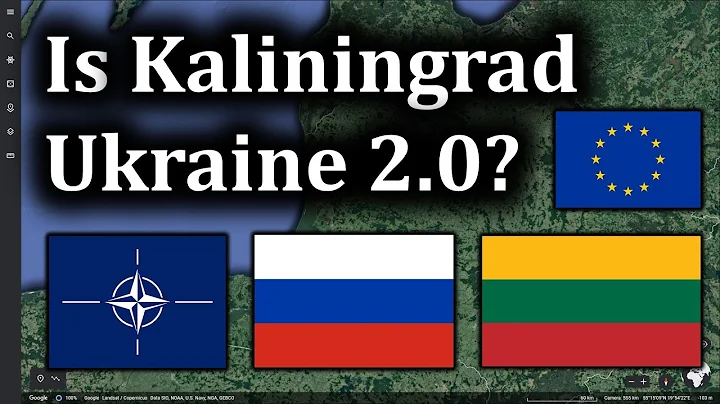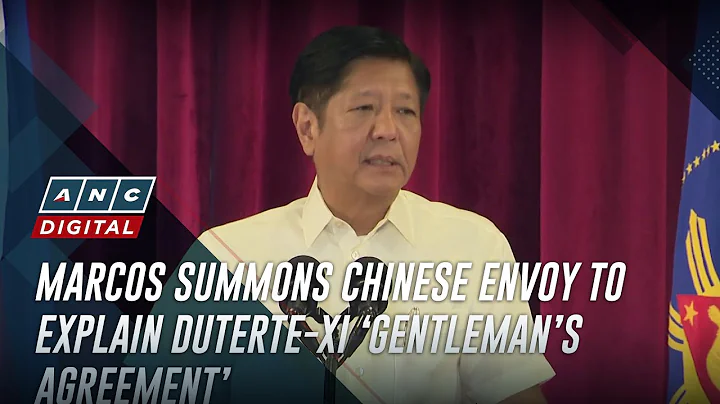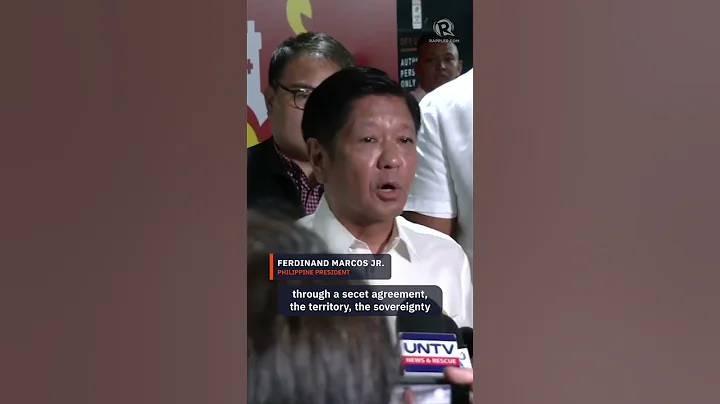Lithuanian President Nauseda stated on the 25th that he would not compromise with Russia on the issue of transit transportation. The Lithuanian government recently cut off the land channel for transporting goods from Russian Economic Lithuania to Kaliningrad Oblast, which triggered strong opposition from Russia. Russia stated that it would fight back against the "embargo order" and make Lithuania "feel the pain."
The Ukraine crisis is not over yet. Lithuania's "blockade" of Kaliningrad will undoubtedly add fuel to the fire in the regional security situation. What is the purpose of Lithuania’s move? How will Russia respond?
A blatant provocation
The Kaliningrad Oblast is a Russian enclave that receives goods and energy from the rest of Russia mainly through railways and gas pipelines. The only railway between Kaliningrad and the rest of Russia passes through Lithuania. Kaliningrad State Governor Alikhanov said on the 19th that the Lithuanian Railway Department had previously informed the Kaliningrad State Railway Department that due to the sanctions imposed by European countries on Russia, Lithuania would restrict some goods from other parts of Russia starting from June 18. Shipping to Kaliningrad Oblast via Lithuania.
Lithuania was originally an anti-Russian "vanguard" among European countries. After the Ukraine crisis escalated, it followed the United States' lead in imposing sanctions on Russia, and its relations with Russia became tense. This time Lithuania openly provoked Russia with the "embargo order", which aroused strong dissatisfaction from Russia. According to the Russian Ministry of Foreign Affairs, Russia summoned the head of the European Union delegation to Russia on the 21st, Edeler, and demanded that Lithuania immediately resume Kaliningrad transit cargo transportation, otherwise it will take retaliatory measures.

On October 16, 2021, a tram drove on the streets of Vilnius, Lithuania. Photo by Xinhua News Agency reporter Xue Dongmei
Lithuania’s “embargo” will greatly affect Kaliningrad’s economic development. Alikhanov said the embargoed goods include coal, metals, construction materials and items related to advanced technology. He predicts that the "embargo" will affect 40% to 50% of railway freight.
Russia recently stated that Lithuania has expanded the scope of the "embargo". In addition to railway transportation, road transportation is also prohibited. Since the escalation of the Ukraine crisis, NATO countries have basically closed their airspace to Russia. Therefore, the only way to transport goods from the Russian mainland to the Kaliningrad Oblast is by sea, that is, starting from St. Petersburg in the eastern part of the Gulf of Finland , through Baltic Sea arrived in Kaliningrad. Since maritime transport is far less efficient than rail transport, Kaliningrad Oblast not only faces shortages of goods and rising prices, but may also face a series of chain reactions, such as the suspension of construction and rising unemployment.
Anti-Russian and pro-American
Lithuania uses Kaliningrad as a bargaining chip to provoke Russia. An important reason is that Kaliningrad has strategic significance to Russia.
Kaliningrad is located on the east coast of the Baltic Sea, deep into the heart of Europe, bordering Poland to the south, and Lithuania to the east and north. Because it can simultaneously guard the sea and land channels from Central and Western Europe to Russia, Kaliningrad has become a military center and is the headquarters of the Baltic Fleet, one of Russia's four major fleets. In order to deal with the threats brought by NATO's eastward expansion, Russia has continuously strengthened the defense of Kaliningrad State and has deployed S-400 air defense missile systems and "Iskander" missiles that can carry nuclear warheads , equipped with Corresponding fixed launching positions. In 2021, Russia also considered deploying the "Dagger" hypersonic missile here, with a range of 2,000 kilometers. After Finland and Sweden applied to join NATO, Kaliningrad's strategic importance further increased.
For decades, Kaliningrad was closed to foreigners as a highly militarized region. It was not until 2018 that the place gradually came into public view as one of the host cities for the World Cup, and now it has become an emerging tourist destination. At the same time, Kaliningrad is also one of Russia's key special economic zones, attracting foreign investment with low tariffs, and the local fishery, animal husbandry and amber mining and processing industries are relatively developed.
Russia has always regarded Kaliningrad as a "trump card" to deter the Baltic countries and other surrounding NATO countries.Since the crisis in Ukraine escalated, the three Baltic countries - Lithuania, Estonia and Latvia - have all supported Ukraine. Lithuania has repeatedly requested NATO to increase military deployment in its territory.
Some analysts believe that Lithuania regards the Ukraine crisis and the upcoming NATO summit as "opportunities" and attempts to take the opportunity to increase provocation against Russia and exaggerate the "Russian threat" in order to cater to the interests of the US military-industrial complex and promote the permanent stationing of NATO troops in its territory.

This is a foxhole photographed in Mariinsky Park in Kiev, Ukraine, on June 20. Photo by Xinhua News Agency reporter Li Dongxu
Risks are unpredictable
The Russian Navy’s Baltic Fleet completed a week-long large-scale exercise in the Kaliningrad area on the 21st, using a total of about 60 ships, more than 40 aircraft, and 1,000 military personnel. Some analysts said that this military exercise was just a prelude to Russia’s response to Lithuania’s “blatant provocation.”
In response to Lithuania's move, Secretary of the Russian Federation Security Council Patrushev said that Russia will fight back. Multiple Russian departments are jointly discussing appropriate measures and will introduce them in the near future.
In view of the fact that the Ukraine crisis is still not over, experts believe that it is unlikely that Russia will open a new battlefield. Under the current situation, Russia may use political, diplomatic and economic means to punish Lithuania, such as completely cutting off energy supplies to Lithuania and withdrawing from the agreement signed with the EU on Lithuania's border and other issues.
Given that Lithuania is a member of the EU and NATO, the risks to Russia's relations with NATO and the EU have risen sharply. On the one hand, the deterioration of Russia-EU relations due to the Ukraine crisis has added more complex factors. The retaliatory measures planned by Russia may not only affect Lithuania itself, but also affect the overall interests of the EU. For the EU, the bigger concern is whether Russia will send troops to control the Suwalki Corridor and cut off the Baltic countries from the EU. The Suwalki Corridor is a narrow strip of land between Kaliningrad and Belarus and is the Baltic country's only land connection to other EU member states. On the other hand, the risk of military conflict between Russia and NATO has increased. Klimov, deputy chairman of the Foreign Affairs Committee of the Russian Federation Council, said that by imposing a transport blockade on the Kaliningrad region, Lithuania has dismantled "the chair it has been sitting on as an EU member for all these years" and will cause incompatibility between Russia and NATO. control military risks.
Reporter: Geng Pengyu



